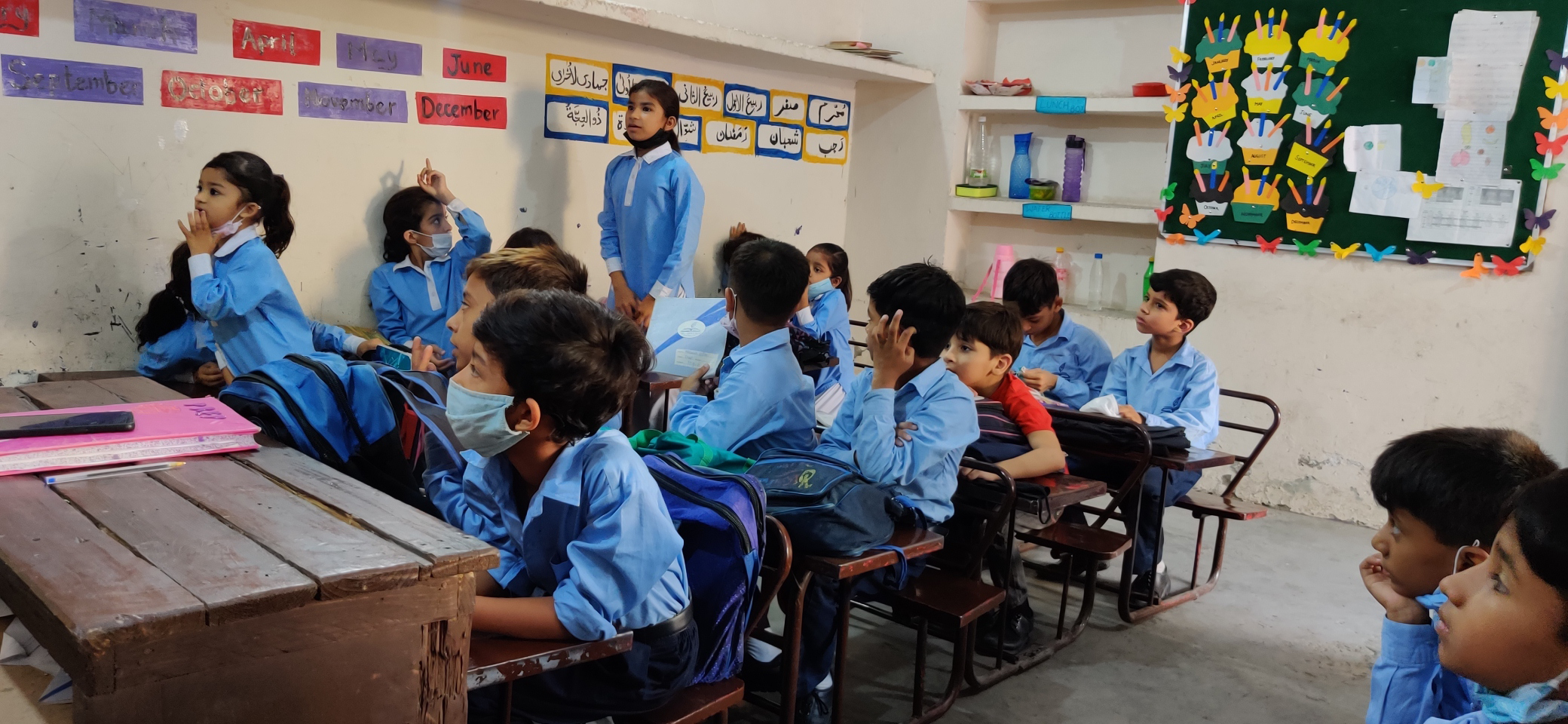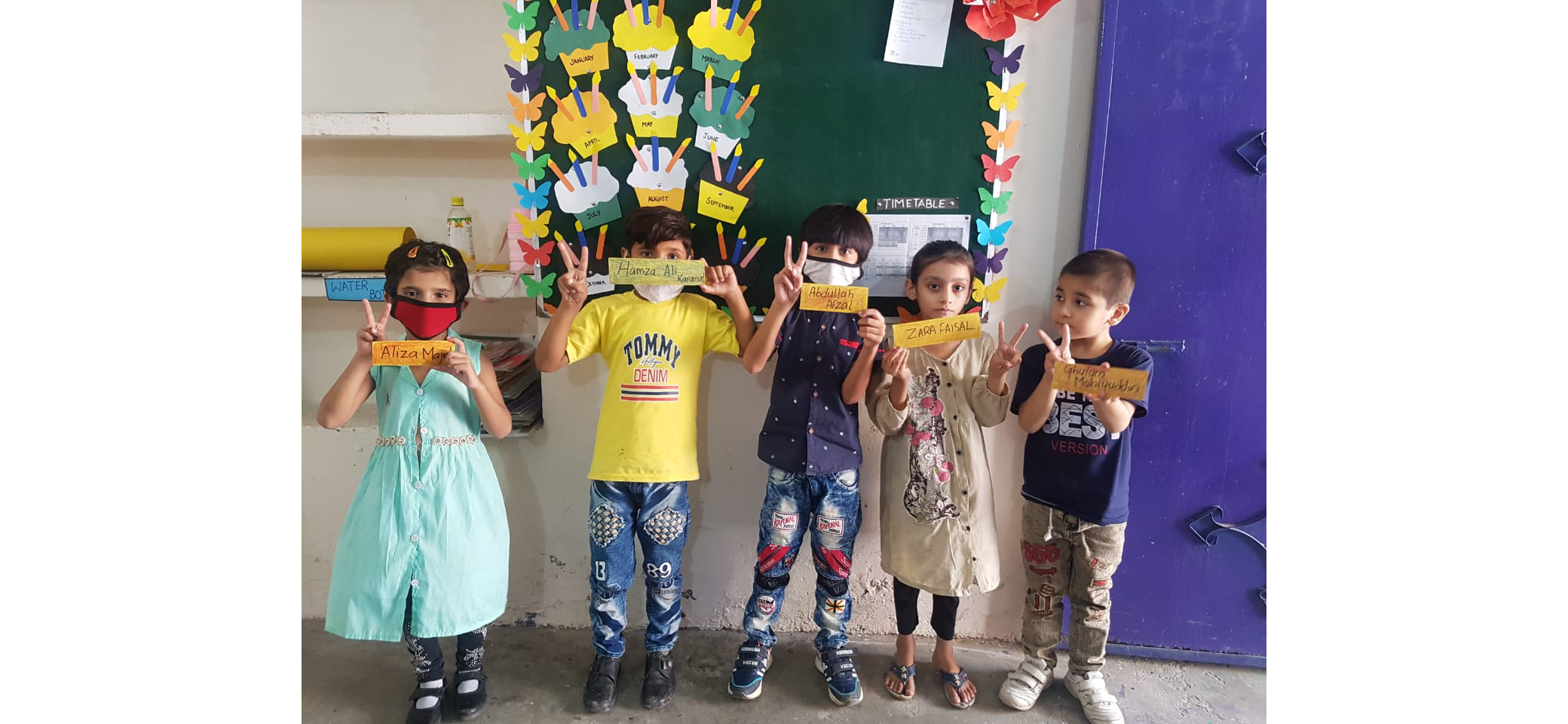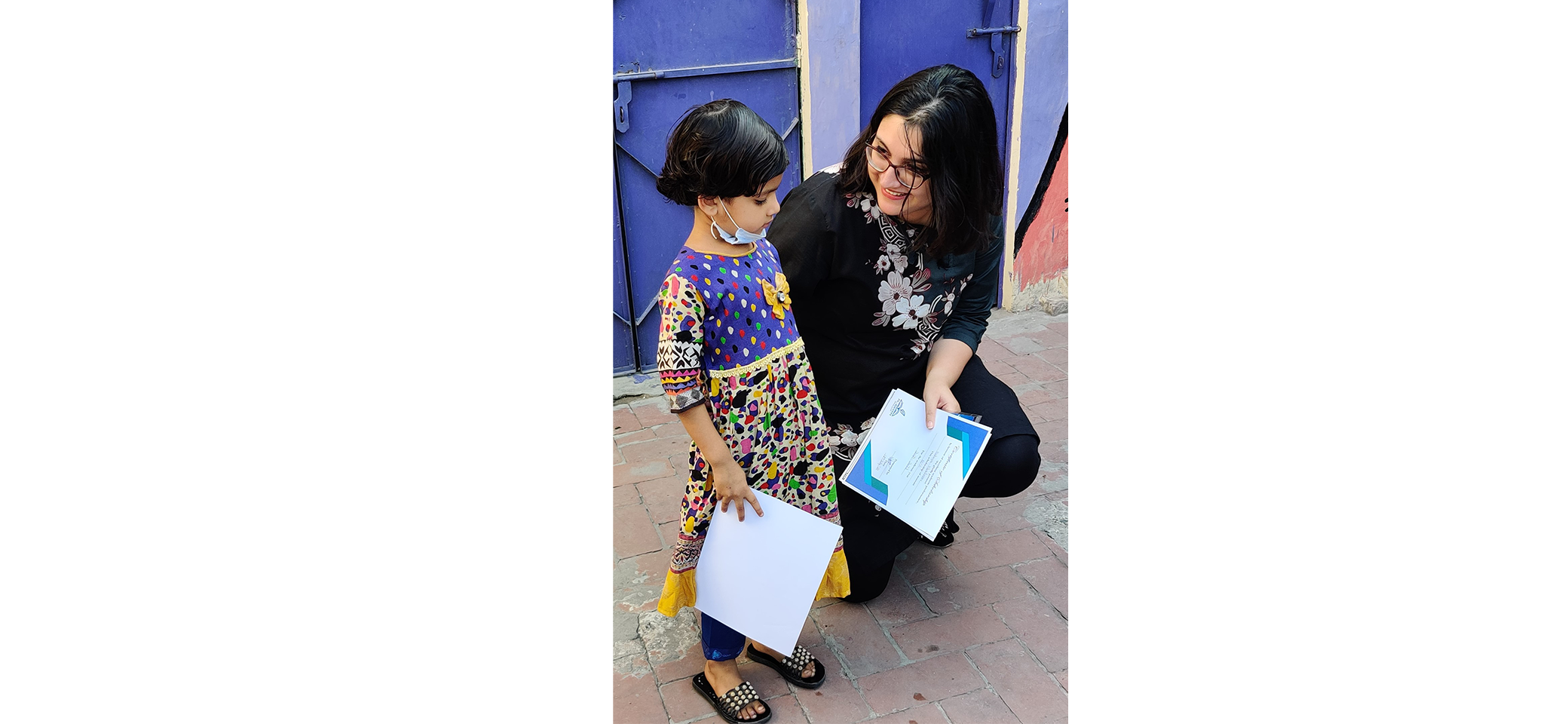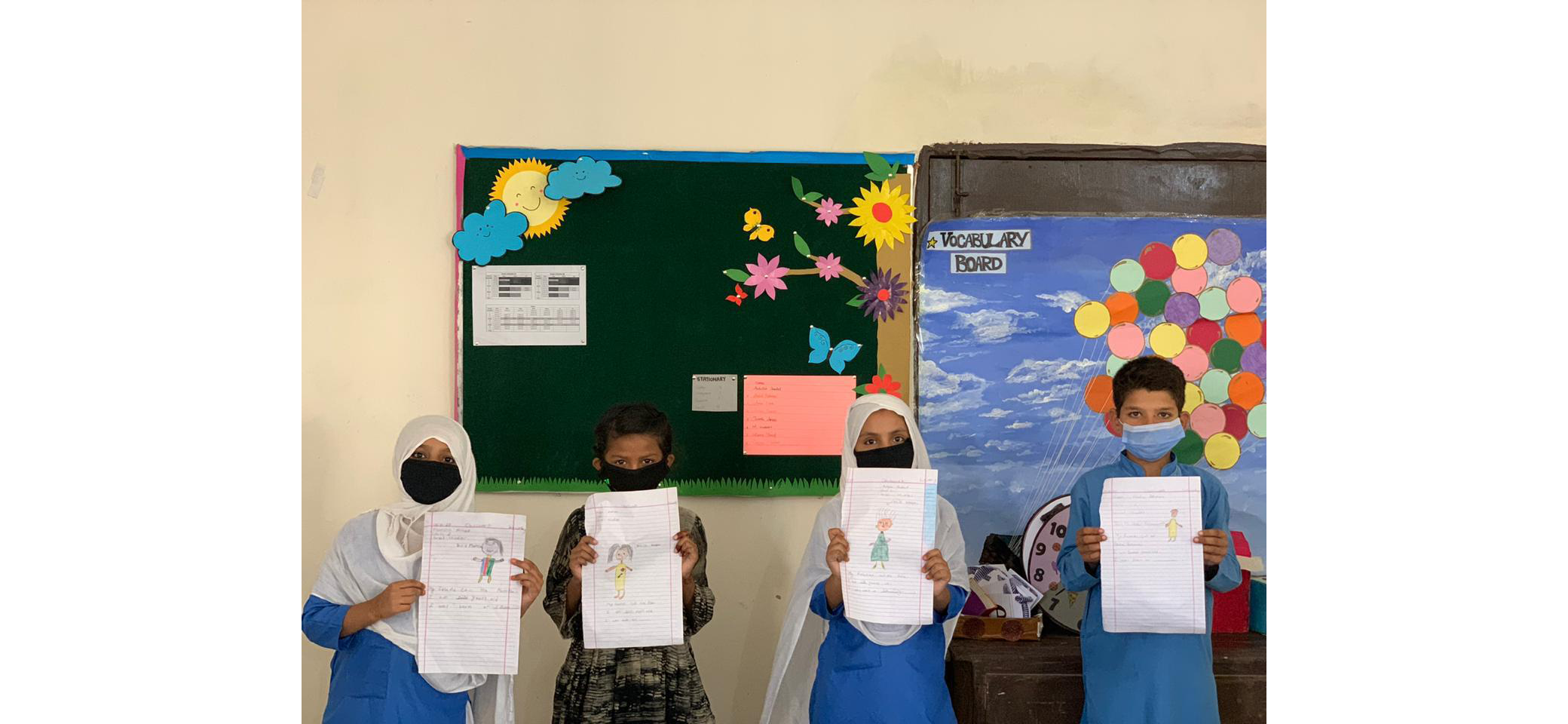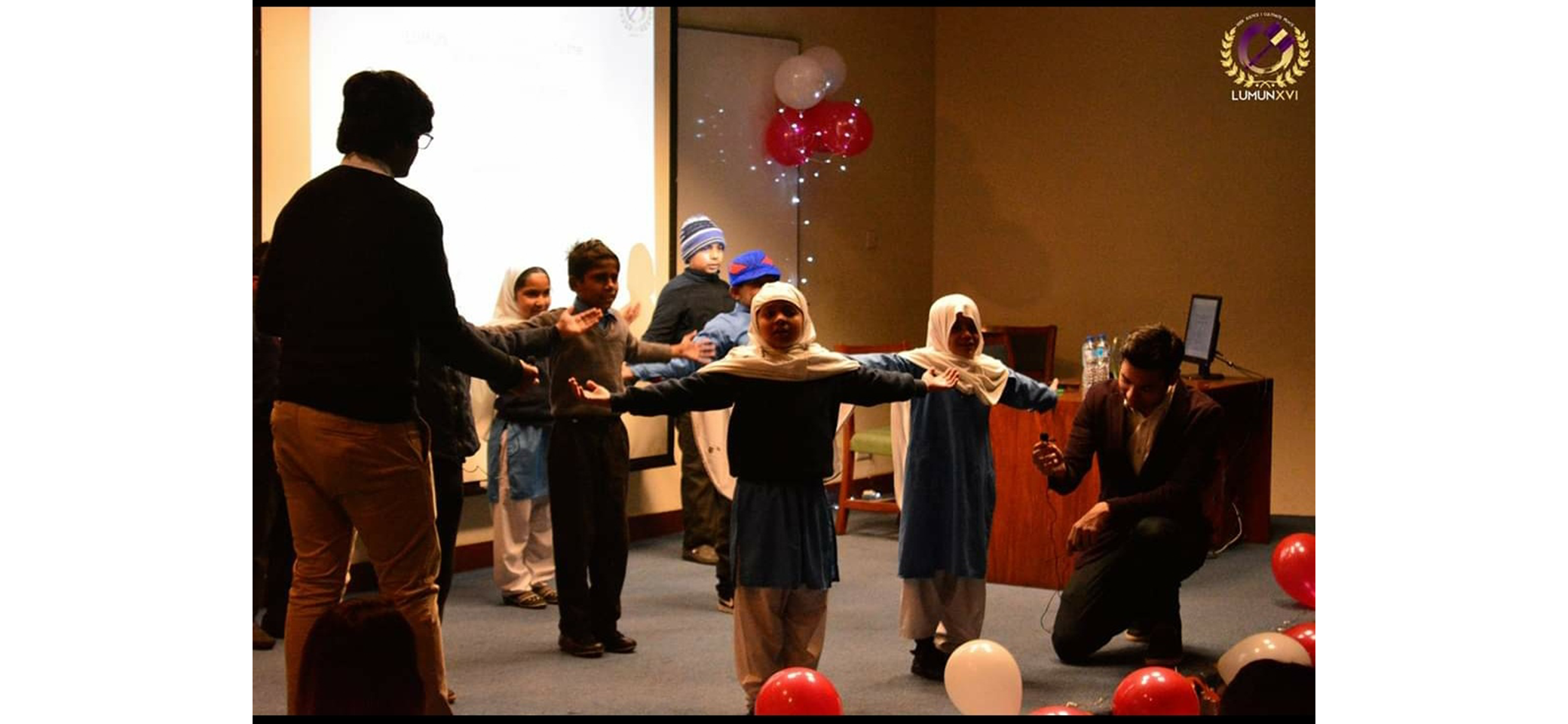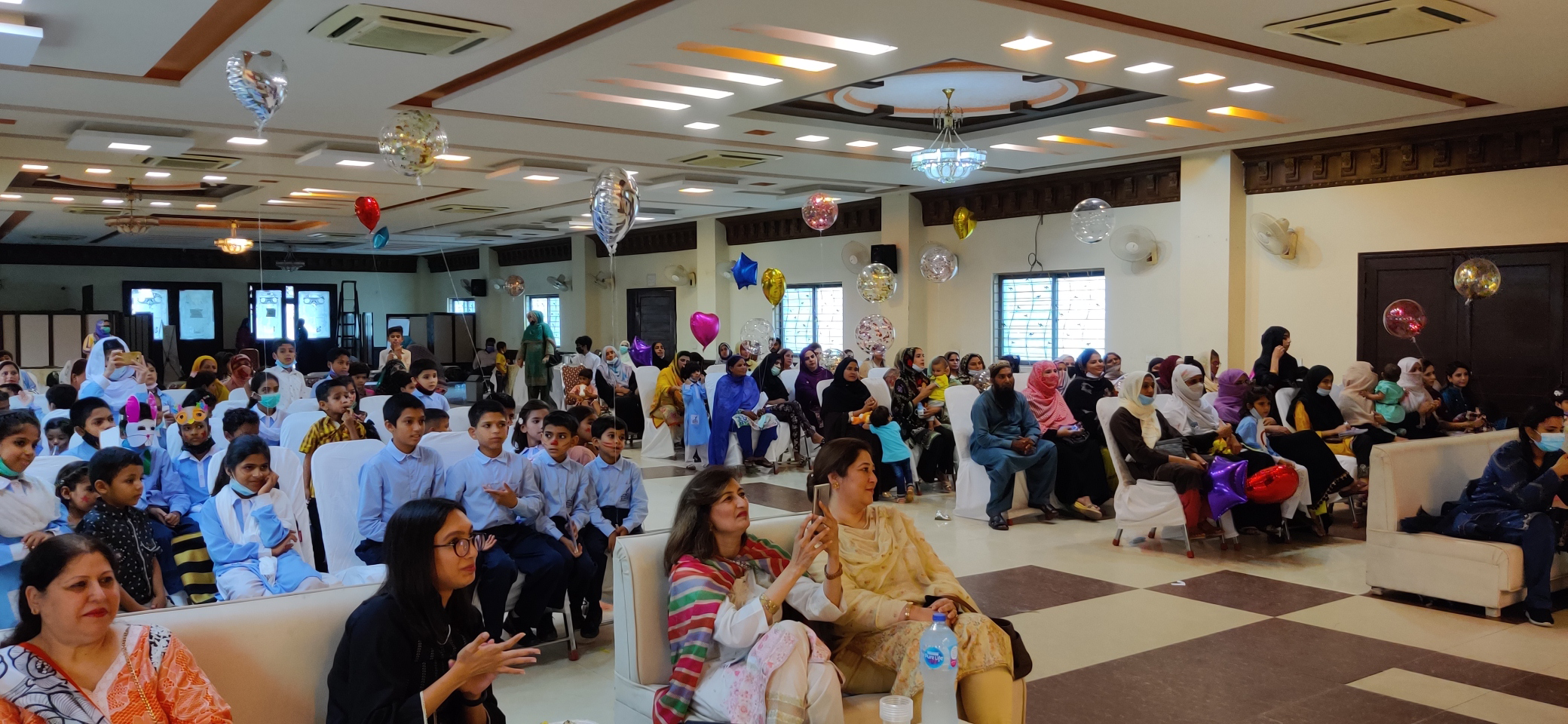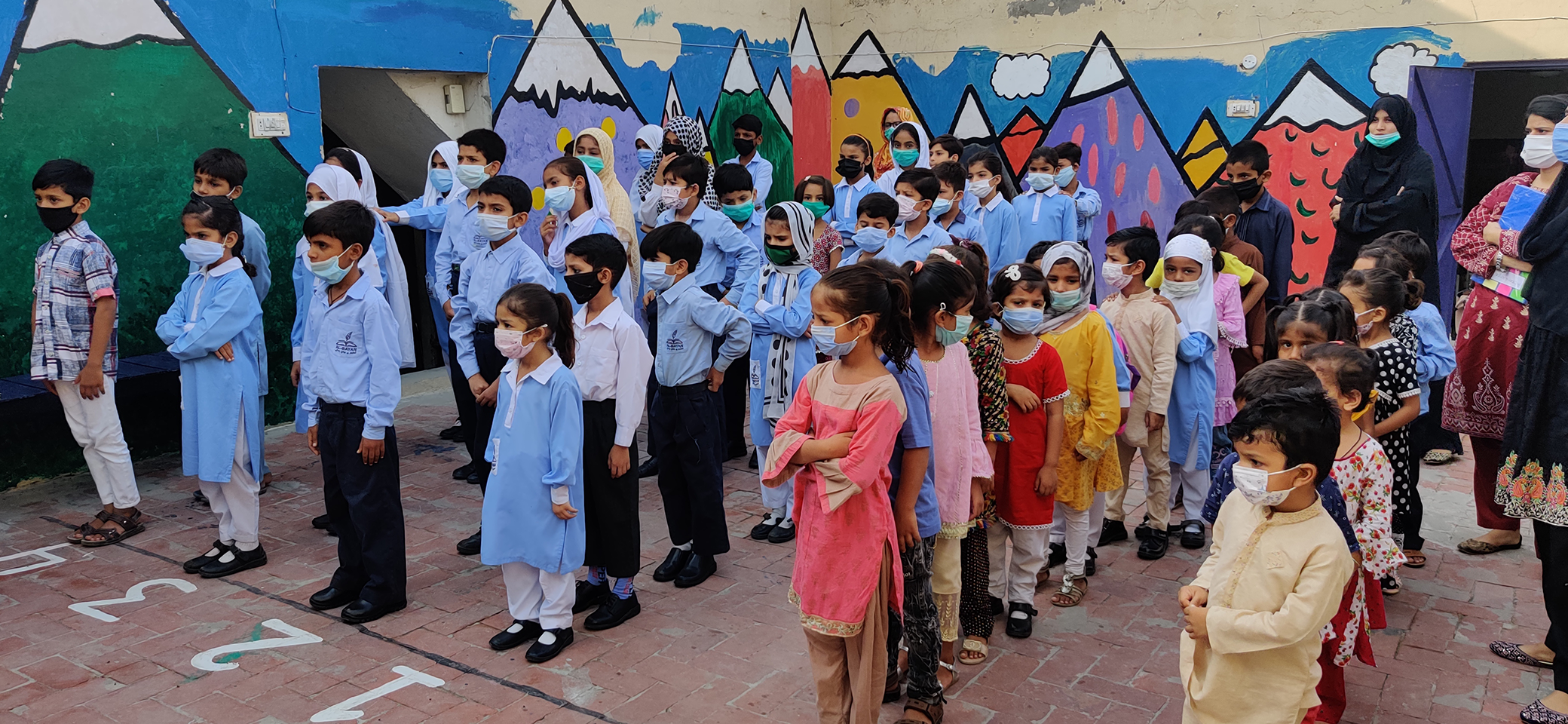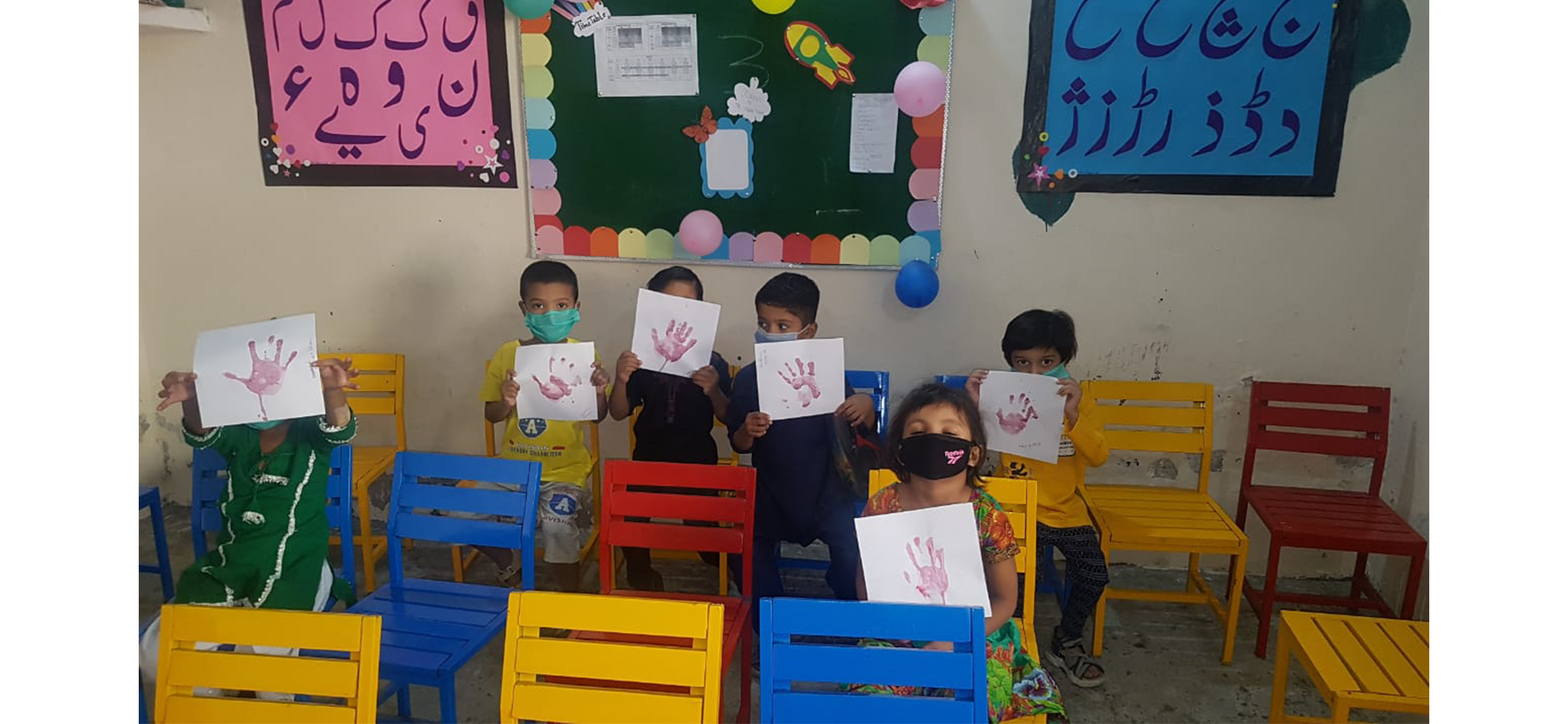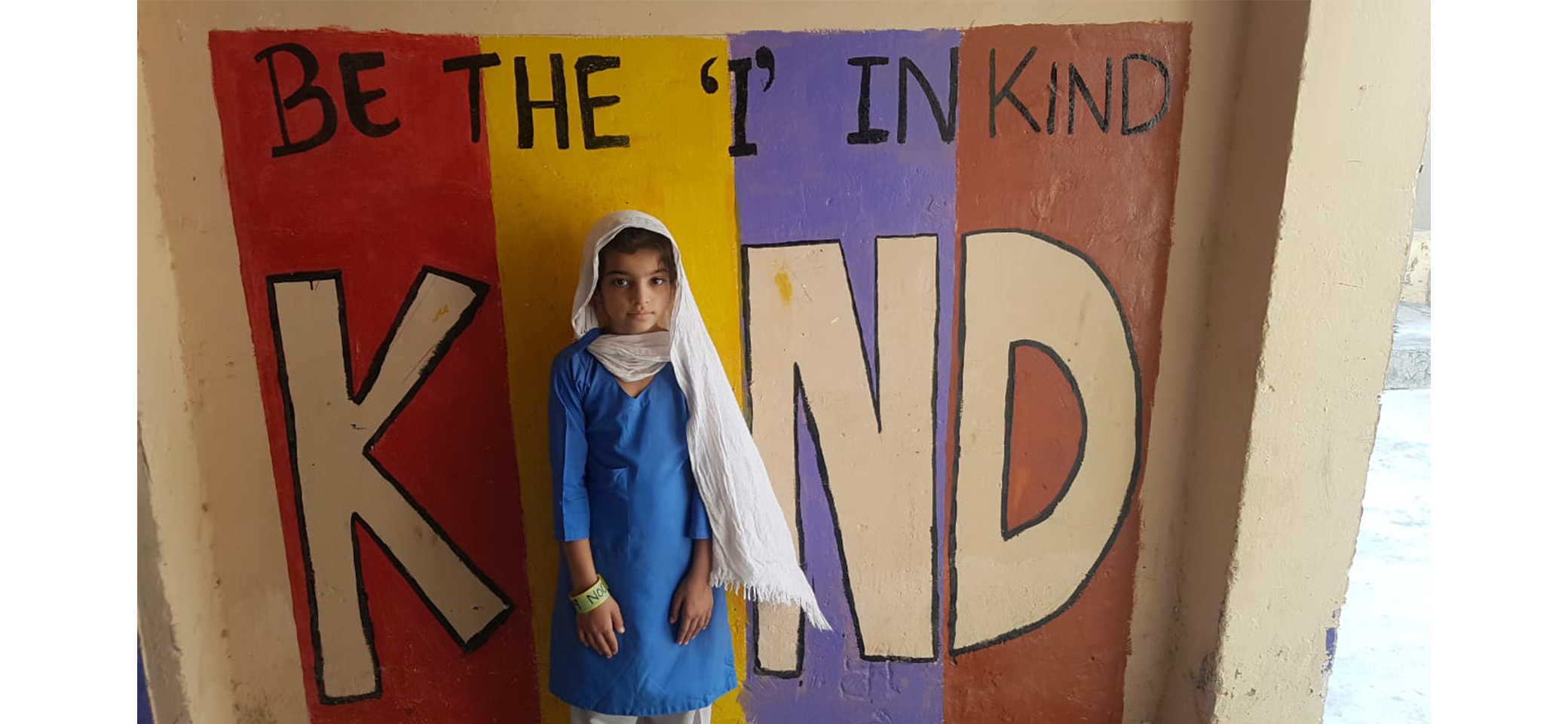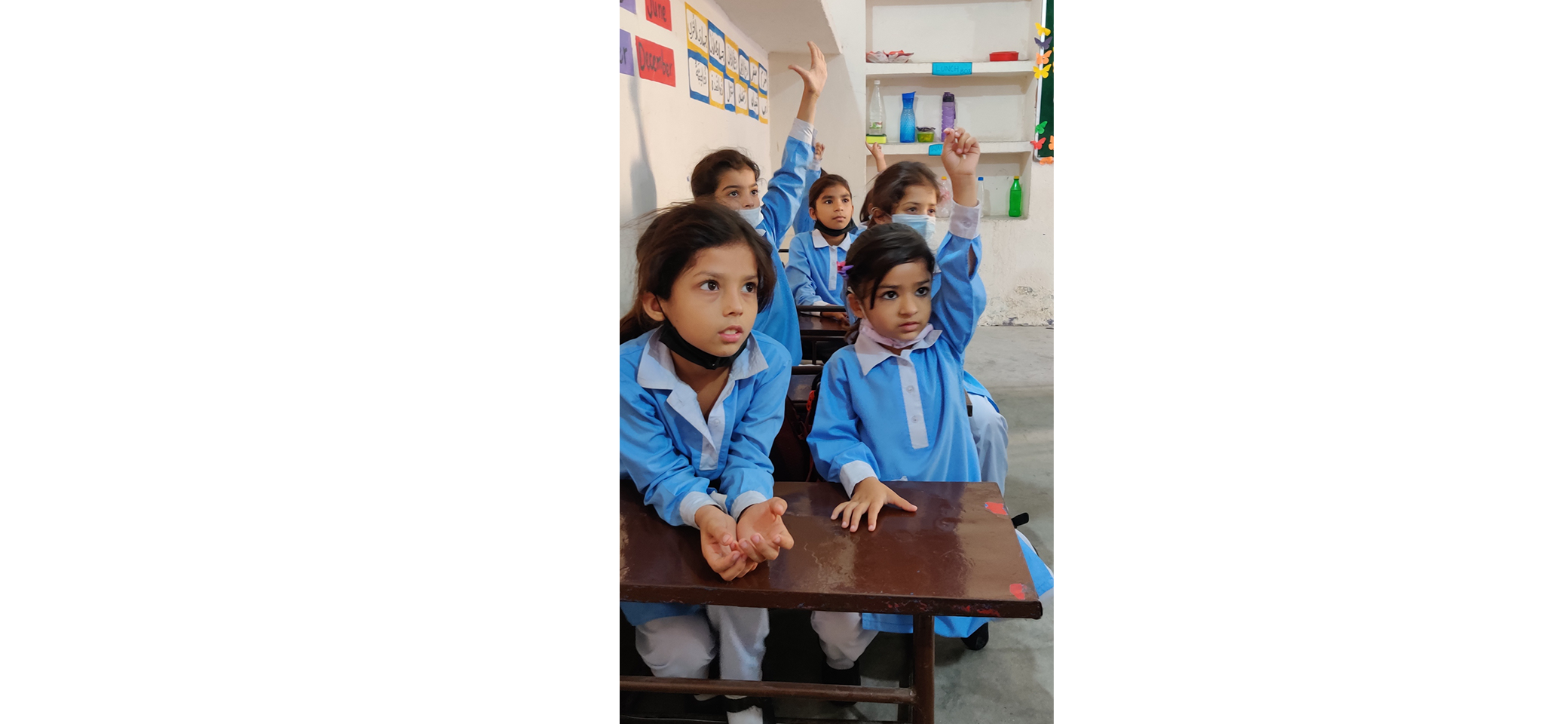It’s a small world after all: Navera Burki ’21S (MS)
It’s a small world after all: Navera Burki ’21S (MS)
By day, this alumna works as a data analyst for Barnes & Noble. In the evenings, she travels remotely to Pakistan to help students at the Al-Bayan School that she cofounded.
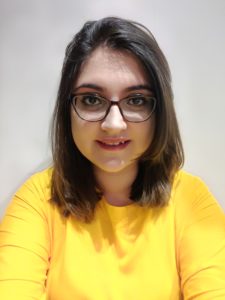
Navera Burki ’21S (MS)
In September 2021, fresh out of the Simon Business School, Navera Burki ’21S (MS), moved to New York City for a job as a data analyst at Barnes & Noble’s headquarters. It’s a perfect role for her, a self-described data storyteller. The Pakistani native thrives looking at data and making sense out of it.
The Barnes & Noble job opportunity came–indirectly–through Simon alumnus, Elmer Salmo ’18S (MBA) who works at the bookseller. Salmo spotted Burki’s resume in Simon’s “resume book,” which the school invites all graduating students to join. He told a hiring manager about her and, after a few interviews, Burki joined the company. Today, she works on many of the company’s e-commerce initiatives, including bn.com and Nook. Ironically, she now shares office space with Salmo.
Learning and mentorship
Burki is grateful for the immersive learning experience at Simon. The top 25 business school—as recently ranked by Bloomberg Businessweek—offers a 10-month master’s program in business analytics that allowed her to take a deep dive into her areas of interest: economics and data science. She also loved Rochester and its small collegiate environment.
While at Simon, Burki signed up for The Meliora Collective’s mentorship match program. A few months later, in January 2021, she was matched with Jonathan Aaron Cohen ’90, a finance systems consultant from Boston.
“Jonathan has helped me so much,” she says. “Even though the mentorship match program has officially ended, we still keep in touch and even met in person recently. He worked with me on my resume and prepped me for my interviews. He also helped me understand and negotiate my compensation package. Everyone should have mentors in their lives who have experience in their fields, networks they can tap into, and great advice and insight to share.”
“During our formal mentorship, we talked every week,” says Cohen. “At first, we listened and learned a lot about each other. Then, I introduced her to a number of organizations, helped her formulate messaging about herself, and guided her through the job search and negotiation process.”
Cohen adds, “While I’ve given her support and advice, Navera’s done the hard work of finding a job in the U.S. that makes great use of her skills. She also spends her free time helping to run a school in Pakistan—her drive is inspiring.”
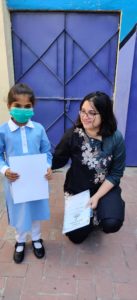
Burki with a Pakistani student
Realizing a dream
Ever since middle school, Burki dreamt of starting school for underserved Pakistani youth. That dream grew out of an experience she had volunteering at an elementary school. “I saw that the kids weren’t being taught some of the basics,” says Burki. “I realized that although many of the private schools in Pakistan are exceptional, they just aren’t available to everyone. The government schools are open to all, but they often lack standardization and emphasize memorization instead of comprehension. All of this means that too many young people just don’t have access to a quality education.”
In 2018, as a college senior at the prestigious Lahore University of Management Sciences in Pakistan, Burki seized an opportunity to address this. That’s when she met Maryam Khawaja, a first-year student who was looking for a partner to launch a grade school. Burki and Maryam spent a year planning what would become the Al-Bayan School.
They rallied donor support, found teachers, got their school certified, and decided on a location—a two-bedroom apartment with a large lounge—within a low-income neighborhood. They then went door to door looking for families to send their kids—from kindergarten to grade 2—to their school. In 2019, they launched a one-year pilot program with 25 kids, a week after Burki’s undergraduate commencement.
Getting creative
Within the same year, Burki also made a decision to pursue her master’s at Simon. She appreciates how Simon gave her the skills, confidence, and training to master topics quickly and solve problems adeptly. She adds, “These skills serve me well at Barnes & Noble and at the Al-Bayan School, which will always be a passion project of mine.”
For instance, early in the pandemic, Pakistan shut down early. Schools had to find ways to adapt, which proved to be quite a challenge for the Al-Bayan School. “Our kids and their families didn’t have Zoom, Microsoft Teams, smart phones, or data plans so they couldn’t lean on technology to learn,” she adds. “We had to come up with creative ways to keep students engaged.”
And that’s what they did. School leaders created educational workbooks, which included activities and assignments that they put in the students’ backpacks. After completing one month’s worth of work, the students returned their assignments to the school and picked up a new pack’s worth of materials. Teachers also started using WhatsApp to send pictures and voice recordings with information and guidelines about assignments.
Doing it all
Now in its third year, the Al-Bayan School is thriving and serves more than 100 students up to grade 4. Even though she’s in New York City, Burki is still actively engaged in the school’s day-to-day operations—just as she was as a Simon student.
“Pakistan is 10 hours ahead of us, so I often come home from Barnes & Noble and then start my day with Al-Bayan” she says, noting that everyone involved in the school volunteers their time, including the five women who run it. “I love what I do professionally and what I do in Pakistan—I can’t imagine doing anything differently.”
Burki adds, “The Al-Bayan parents and the community are very happy with what their children are learning. We focus on core classwork Monday through Friday. Then, on Saturdays, the school hosts volunteers who bring their areas of expertise to the students who then get to learn about everything from public speaking to women empowerment to climate change.”
Burki notes that about 60 percent of the Pakistani population is under 30 years old. Just a small percentage of them come from wealthy households—and, as a result, they have opportunities that others don’t. “There’s a huge income inequality issue in Pakistan,” says Burki. “The wealthy kids end up taking over their family businesses or going abroad to study or to start their careers. Those who didn’t go to the best schools or have their parent’s money to fall back on, end up dropping out of school to support their families. Or, they barely pass one of the government-run high schools and can only find a low paying job.
According to Burki, prior generations left Pakistan and never came back. “My generation wants to change this—to make Pakistan strong and well-educated. We want our country to thrive, and we want to take action to help it improve. That’s why we have this school. It’s also why we offer our Saturday program. It gives our volunteers—those in my generation—an opportunity to help the next one. Together, we are making a difference.”
Look for the Al-Bayan School on Instagram @albayanschoolpk.
What’s on my bookshelf
Burki listens to a lot of audiobooks on her commute, while washing dishes, cleaning her apartment, and anytime she has a free moment. Here are two recent favorites:
Invisible Women: Data Bias in a World Designed for Men by Caroline Criado Perez: “I care a lot about women’s issues and about data authenticity, so this book really resonated with me. It prompts important discussions about ethics, bias, and inclusivity.”
Sapiens: A Brief History of Humankind by Yuval Noah Harari: “This New York Times bestseller explores how biology and history define us and what it means to be human. This is part of a series and I recommend them all.”
Get involved
Join and explore The Meliora Collective—an online platform for alumni, parents, faculty, staff, and undergraduate and graduate students that fosters professional exploration. Learn more about The Meliora Collective Mentorship Program, too, which runs twice each year, and matches individuals based on academic and career interests, affinities, and life experiences. The next mentorship cycle will begin accepting new mentee and mentor sign-ups in January with matching to take place in early February.
— Kristine Kappel Thompson, December 2021



